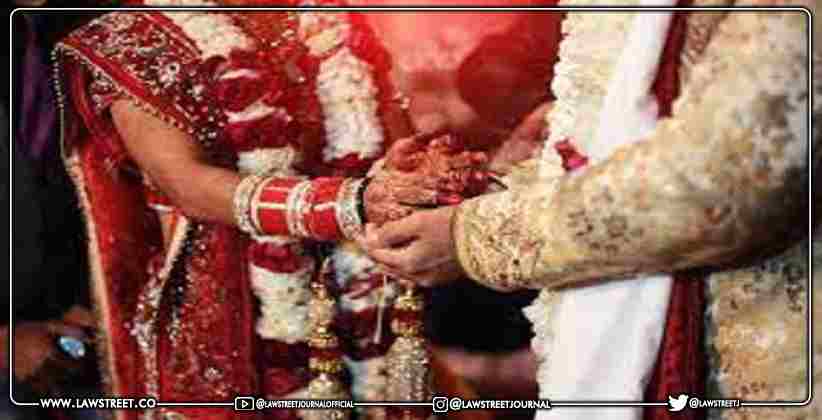The Supreme Court has held that in a proceedings under the Hindu Marriage Act, 1955 between a husband and a wife, a relief against a third party cannot be claimed.
The Court held so while rejecting a wife's plea to seek a declaration that the alleged marriage between her husband and another woman was void.
The Court stated: "Under the provisions of the Hindu Marriage Act, the relief of divorce, judicial separation etc. can be between the husband and the wife only and cannot extend to the third party. Therefore, by virtue of Section 23A of the Hindu Marriage Act, it is not open for the appellant herein - original defendant to seek declaration to the effect that the marriage between the respondent original plaintiff and the third party is void. No relief can be prayed by way of counter claim even against the son born out of the alleged wedlock between the respondent - original plaintiff and the third party".
A bench of Justices M.R.Shah and A.S.Bopanna made the observation in a judgement Nitaben Dinesh Patel vs Dinesh Dahyabhai Patel. The judgement authored by Justice M.R.Shah further held that if some facts have come to the knowledge subsequent to the commencement of trial an application for amendment of written statement can be allowed even after the trial has commenced.
Factual background of the case:
The question regarding the amendment of pleas and the nature of reliefs that can be pleaded arose in a divorce suit between the appellant-wife and respondent-husband. The respondent-husband filed a petition seeking dissolution of marriage. The appellant-wife sought amendments to her written statements seeking, inter alia (i) that respondent-husband is living in adultery and (ii) that at subsequent marriage between respondent-husband and third party be declared void and that child born of that wedlock be declared an illegitimate child.
An order of the Family Court partly allowed the application permitting the appellant-wife to amendment the written statement to include the factum of respondent-husband's second marriage but refused permission to amend the written statement to seek relief against third party. High Court in its impugned judgement dismissed the appellant-wife's plea to amend written statements in both instances on the ground that once a written statement is filed and the trial has commenced, application to amend the written statement in exercise of powers under Order VI Rule 17 CPC is not required to be entertained.
Court's Judgement
Explaining Order VI Rule 17 CPC which permits amendment of written pleadings, the Bench explained that no application for shall be allowed after the trial has commenced unless the Court comes to the conclusion that in spite of due diligence, the party could not have raised the matters before the commencement of the trial.
In the present case, the Bench noticed that the appellant-wife came to know about the subsequent marriage between respondent and third party only during cross-examination of the respondent.
Therefore, the restrictions as per proviso to Order VI Rule 17 CPC shall not be applicable.
The Bench held:
"If some facts have come to the knowledge subsequently and subsequent to the commencement of trial....and if it is found necessary for the purpose of determining the real questions in controversy between the parties...such an application for amendment can be allowed even after trial has commenced." (Para 7)
With respect to the permissibility of counter-claim under Order VIII Rule 6A of the CPC, the Bench observed that the core question which requires consideration is whether the appellant-wife could have claimed the relief sought qua para 37 by way of counter-claim in a marriage petition filed by the respondent-husband for dissolution of the marriage?
Answering the question in negative, the Bench held that as per S.23A of the Hindu Marriage Act, by way of counter-claim the appellant-wife can pray for reliefs only those which can be prayed or granted under HMA namely- Restitution of Conjugal Rights (S.9); Judicial Separation (S.10); Declaration of marriage between petitioner and respondent void (S.12) and divorce (S.13). Crucially, the Bench holds that no relief can be prayed qua third party.
The Bench further observed that the only remedy available to the appellant would be to file a substantive suit and/or initiate independent proceedings claiming such reliefs. The Court set aside the impugned judgement and order passed by the High Court and restored the Family Court order partially permitting the appellant-wife to amend her written statement.
The judgement set aside the impugned judgement and order passed by the High Court and restored the Family Court order partially permitting the appellant-wife to amend her written statement.








